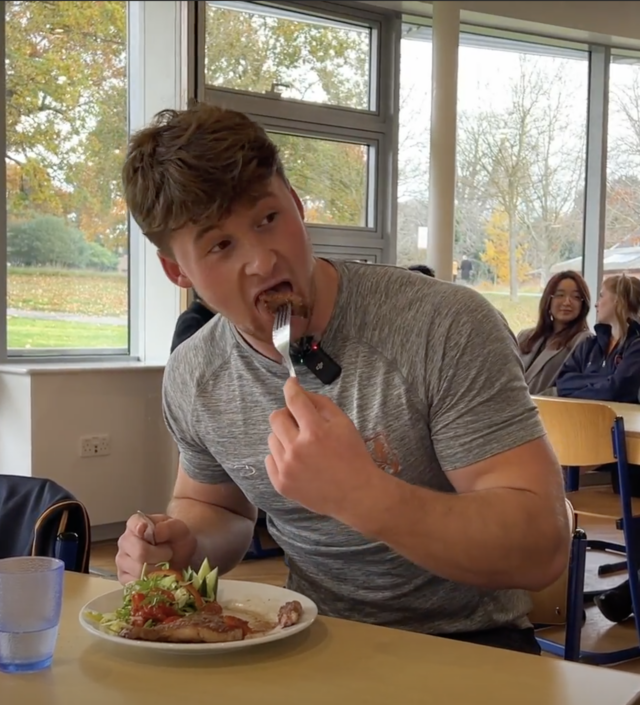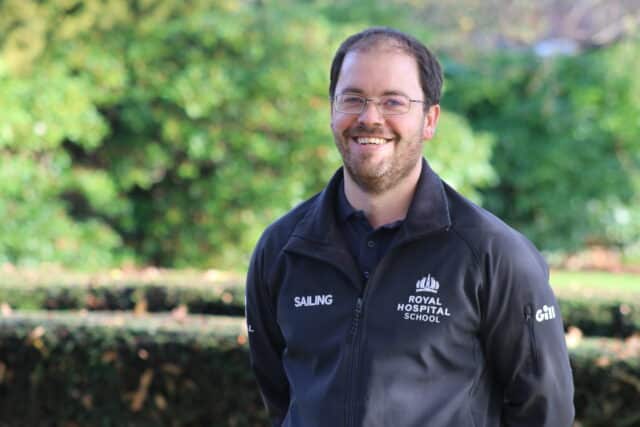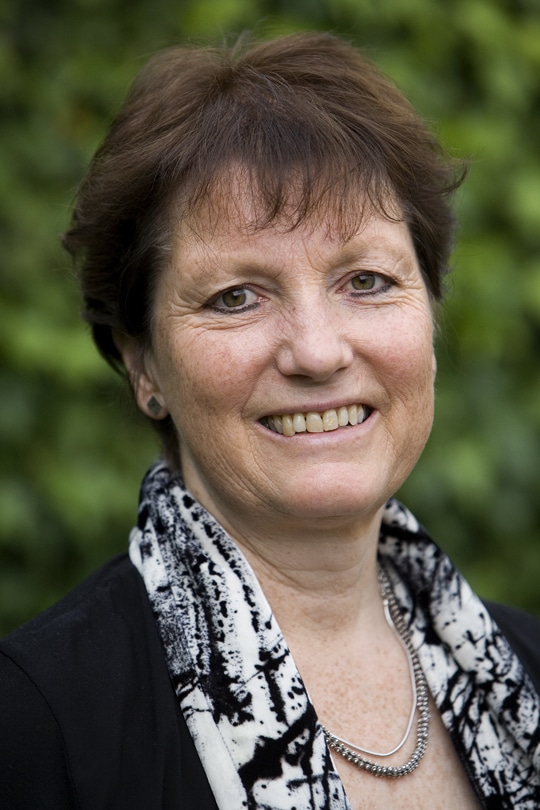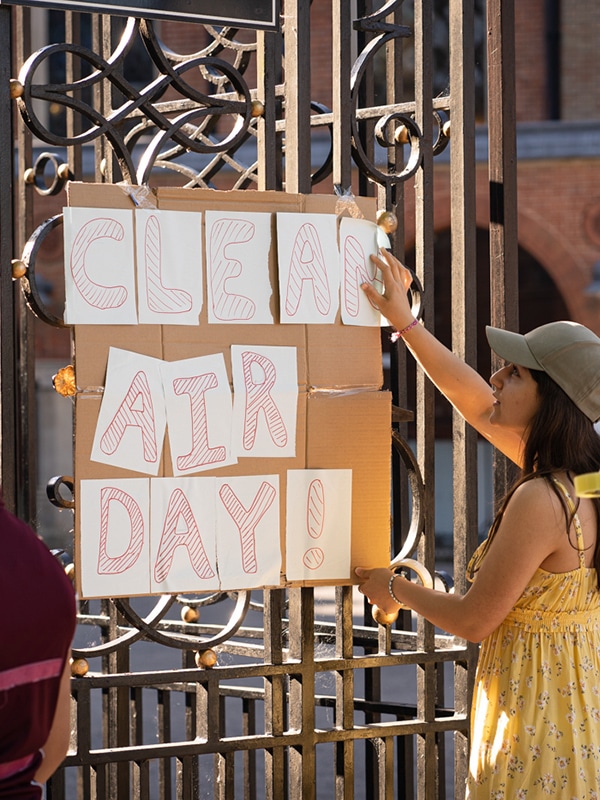Blog
A Meating of the Minds: Gaining whole school consensus to reduce carbon footprint through catering

Oliver Staines
Head of Geography and Sustainability Coordinator, Leighton Park School
Read the blog
Catering at Leighton Park is excellent; our restaurant is renowned for providing top quality dishes and visitors always comment on the quality of our provision. We have children registered for places at least in part due to our ‘scrumptious brownies’. But there’s a problem. Our catering accounts for up to 60% of our CO2 emissions (according to our own measured scope 1 and 2 emissions).
Over the last few years we have approached this significant portion of our emissions from a variety of angles: running student led campaigns on ‘flexitarianism’; ‘meat free days’ which have engendered some vociferous push back from within our community; and nudging the choice architecture of the order and prominence of lower CO2 impact options. It is fair to say that none of these approaches have had the transformative impact sought.
It is also notable that the recent white paper on ‘Supporting Independent schools on the road to Net Zero and Sustainability’, whilst offering many excellent insights, lacked the inclusion of school catering amongst the suggested areas of focus.
Not to be deterred by past experiences, we are trying something new to coincide with COP28 and I am genuinely optimistic about our latest approach. We’re focusing on the emotive and polarising issue of steak with a campaign entitled ‘A Meating of the Minds’.
550 Leighton Park students are taking part in an hour of discussion and debate in their tutor groups featuring views canvased from across the staff on the deliberately provocative question of whether meat should be removed from the menu.
All lesson resources can be found here.
They will have the chance to share and air their own perspectives in a non-confrontational manner, learning more about other’s views, as well as where they may have agreements. Within this session is embedded the data on the impact of catering at the school, broken down by food type and accompanied with a simple menu choice of five options for how catering could alter its CO2 equivalent impact (using figures provided by the restaurant on their procurement in May last year as our baseline data).

The lens of the discussion is deliberately designed to be focused on carbon impact, not to close out other arguments such as nutrition, personal choice, biodiversity and animal rights etc, but to give an anchor to the process and the options presented. These options take inspiration from the debates being held in many higher education institutions over their own catering operations, where the lowest hanging fruit of emissions reduction involves phasing down beef and lamb as opposed to a blanket reduction in all meat types.
Following this we are coming together as a whole school one week later, after participants have had the chance to reflect and digest, for a ‘business meeting’ run by the Head Prefect team. For those unfamiliar with Quaker practice, the closest analogy would be a cross between BBC Question Time and the plenary session of the official UN COP process, where countries agree on the wording of the final text. The five options that will be on the table with their relative impact on catering’s footprint range from:
- ‘status quo’ 0% CO2 reduction, to
- ‘One meat free day a week’ 20% CO2 reduction, to
- ‘removing all beef and replacing with chicken’ 53% CO2 reduction.
Anyone is free to stand and speak or ask a question of the room, the academic scholars group has also brainstormed and sought to anticipate potential questions, so they are ready to stand and communicate from a firm evidence base and in a clear and concise manner for the benefit of the community.
We will see whether consensus coalesces around any of the options presented, the opportunity to fully consider the impact of our catering will truly be a ‘Meating of the Minds’, which we hope will move us forward positively in our journey to reduce CO2.


